
Nov 16 2022 How Your Grandchild’s B-Mitzvah Can Enrich Your Relationship with Your Adult Child
Ages:
AdultHow wonderful that your grandchild is becoming B-Mitzvah! As you explore the significant ways to be involved in the experience, you might want to begin with your own adult child — the parent of your grandchild — as a way to help develop and enhance that relationship.
When your grandchild was born, it might have been challenging to accept that your child was now a parent — and the one making decisions about how to raise your grandchild. For example, in the early years, you probably had your own opinions about practical matters such as food, sleep, and clothing and equipment; as your grandchild grew, perhaps you had views about schoolwork or religious practice in their family. Yet, these were decisions made by your child and their partner, if they have one, not you.
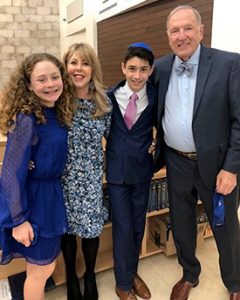 Now, your adult child and partner are at a liminal family moment, a time of transition. The tween years, the time of the B-Mitzvah rite of passage, are often fraught and sensitive for parents. Their child may be pulling away, seeking more control and independence, perhaps getting angry with them, and becoming critical of the parents in new ways which can be quite hurtful.
Now, your adult child and partner are at a liminal family moment, a time of transition. The tween years, the time of the B-Mitzvah rite of passage, are often fraught and sensitive for parents. Their child may be pulling away, seeking more control and independence, perhaps getting angry with them, and becoming critical of the parents in new ways which can be quite hurtful.
Even though most parents realize this is appropriate behavior for that age, it can make home life tense. Perhaps the parents feel insecure about their parenting skills at this stage. Maybe they are exhausted, stressed, or overwhelmed and, on top of that, they now have the pressure of an approaching B-Mitzvah. They may be asking themselves: How will my child handle the demands of, say, learning to chant trope? What does my child want from the B-Mitzvah experience? Do we want to create our own ceremony? How will I manage the logistics of getting them to B-Mitzvah lessons when I have my own work responsibilities? What do the grandparents and other close relatives expect of us? How will I make everyone happy? What sort of celebration can we afford?
The parents might welcome your support during this stressful time. Above all, try to be gentle and put their needs ahead of your own.
Here are a few suggestions for approaching your adult child as you explore ways to be involved in the family’s life-cycle experience. If you live at a distance, you can still implement many of the ideas, especially listening deeply and offering oodles of moral support.

1. Begin with some personal reflection.
Ask yourself the following questions. There are no right or wrong answers; it is the process of reflecting and seeking to understand that is important.
What does this B-Mitzvah mean to me? What feelings do I associate with it? Am I nervous for my grandchild? Am I worried that I will be (or feel) excluded? Did I doubt that my children would choose this route? How did I feel about my own child’s B-Mitzvah (if they had one)? Do I have specific expectations from the experience? What role does tradition (and perhaps even superstition) play for me?
Keep the answers to these questions in mind as you proceed to the next step.
2. Have a conversation with your child and partner.
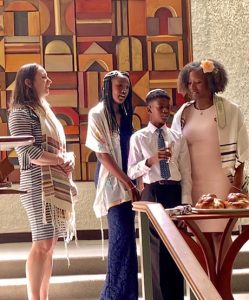 Let the parents know that you understand this is an important time in their lives and that you would like to be involved in a way that is meaningful and helpful to them and to the family. Be clear that you want to support them, not get in the way or take control.
Let the parents know that you understand this is an important time in their lives and that you would like to be involved in a way that is meaningful and helpful to them and to the family. Be clear that you want to support them, not get in the way or take control.
Listen to what they have to say. This may be one of their first opportunities to really express their hopes, dreams, fears, needs, about this milestone experience. For example, they may see it as a way to reconnect to the tradition; or possibly they’d like a simple do-it-yourself ceremony with a home-written ritual, perhaps including storytelling and sharing family heirlooms. Maybe they want a big party, or they want the celebration to be at a bowling alley with just a few of the teen’s friends. They may also be apprehensive about the expectations in their community.
Try to truly understand what this moment means for your child. Be curious and full of wonder, rather than jumping in expecting that you know the answers or sharing your feelings and ideas, unless you are asked.
3. Address mismatched needs and expectations.
Understand and accept that it is possible (maybe even likely) that you will have a different image of this experience than your child. The world, including the way we experience our Judaism, has changed. There are many nontraditional ways to celebrate B-Mitzvah and even some traditional ways have evolved.
For example, you may expect that your grandchild will chant from the Torah and/or read the entire haftarah. The family may decide that the teen will read a small piece of Torah and focus on sharing a meaningful d’var Torah. You may want to invite more relatives and friends of your own than your child had planned for. The family may prefer an intimate gathering or be concerned about the very real economic cost of a large celebration. These are challenging issues, with no right answers. At a quiet time, let your child know you have some thoughts about this and share them in an honest, calm way to better help them understand your perspective.
Keep in mind that they are the decision makers, and it may be best for you to back off. Your relationship is more important than these issues.
4. Find ways to be a part of the B-Mitzvah family support team.
 What role can you play that will make the experience easier for the parents? For your grandchild? Is there something you will do once, such as taking your grandchild on a skip-gen travel experience, or can you help regularly, perhaps driving them to tutoring or religious school? Are there other children in the family who might need care while the parents are focused on the B-Mitzvah child?
What role can you play that will make the experience easier for the parents? For your grandchild? Is there something you will do once, such as taking your grandchild on a skip-gen travel experience, or can you help regularly, perhaps driving them to tutoring or religious school? Are there other children in the family who might need care while the parents are focused on the B-Mitzvah child?
Many B-Mitzvah kids are involved in a tikkun olam (social justice or mitzvah) project. Is there a way for you to help with that? If you are local, maybe you can cook dinner on a night the family is busy. This could be a time for you to prepare some of your favorite recipes to share and pass down — perhaps together with your teen grandchild.
![]() Click HERE for ways to cook and share family stories
Click HERE for ways to cook and share family stories
5. Check in with one another over the months leading up to the B-Mitzvah.
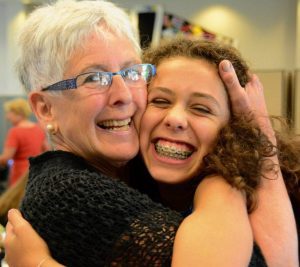 If you are in regular contact with your grandchild, share something about that with your child. If your grandchild says something that makes you laugh or smile, share that. Parents love to hear that other people (even close family members) think their child is wonderful, even if they’ve heard it many times before. Take photos while you are together and text them to your child, perhaps with some light-hearted commentary.
If you are in regular contact with your grandchild, share something about that with your child. If your grandchild says something that makes you laugh or smile, share that. Parents love to hear that other people (even close family members) think their child is wonderful, even if they’ve heard it many times before. Take photos while you are together and text them to your child, perhaps with some light-hearted commentary.
As the event gets closer, reassess your role. Are there other ways you can now be involved? At this point there are many practical things that need to happen, and time becomes more pressured.
Here are some examples of how you might help:
- If you live close by, go grocery shopping for the family.
- Bake for an oneg (festive celebration).
- Create a digital photo album. Read how to do that here. Or create a hard copy photo book using a site such as https://www.shutterfly.com/. You are possibly the link in a five-generation chain from your grandparents to your grandchildren. You may be able to contribute some of your own photos from older relatives who are no longer alive. This could be a wonderful and meaningful time to make a book of family history.
- If you crochet or do other craftwork, perhaps make a kippah or tallit bag with or for your grandchild. Share family stories.
- Invite your grandchild to practice with you (Torah portion, haftarah, d’var Torah or speech, words of thanks).
- Listen openly and without judgment to their excitement, concerns, and anxieties about the event.
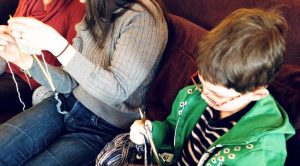
As the B-Mitzvah day approaches you may find yourself reflecting and reminiscing about your own life, your parents and your grandparents. It is an awe-inspiring time and a true gift to be able to celebrate this milestone with your grandchild. It can be especially powerful and meaningful that, as you reach this Shehecheyanu moment, you also have the opportunity to continue to enrich your relationship with your own child and to set the stage for further growth and connection in this next phase of your life.
Margie Bogdanow, LICSW, is a social work educator, coach, consultant and facilitator based in New England and is a gramma to 7 grandchildren. Her professional work focuses on impacting adults to make a positive difference in the lives of those around them, particularly young people. Among other projects, she currently serves as a Senior Advisor at Jewish Federations of North America and a Consultant at Combined Jewish Philanthropies and Hebrew College in Boston. She was on staff at the Union for Reform Judaism for many years. Margie was a co-creator of the Hebrew College “Grandparenting Through a Jewish Lens” and “Parenting Teens Through a Jewish Lens” curriculum. She is an active member of Temple Isaiah in Lexington MA, where she served as President for two years.
Photographic Credits
Banner and grandfather writing courtesy of Pexels
B-Mitzvah family photograph by Debby Weiss
B-Mitzvah ceremony with family courtesy of Union for Reform Judaism
Teen carrying Torah by Alex Paul Photography
Reading a recipe and family knitting together by Stephanie Fink
Grandmother and B-Mitzvah grandchild by unknown photographer




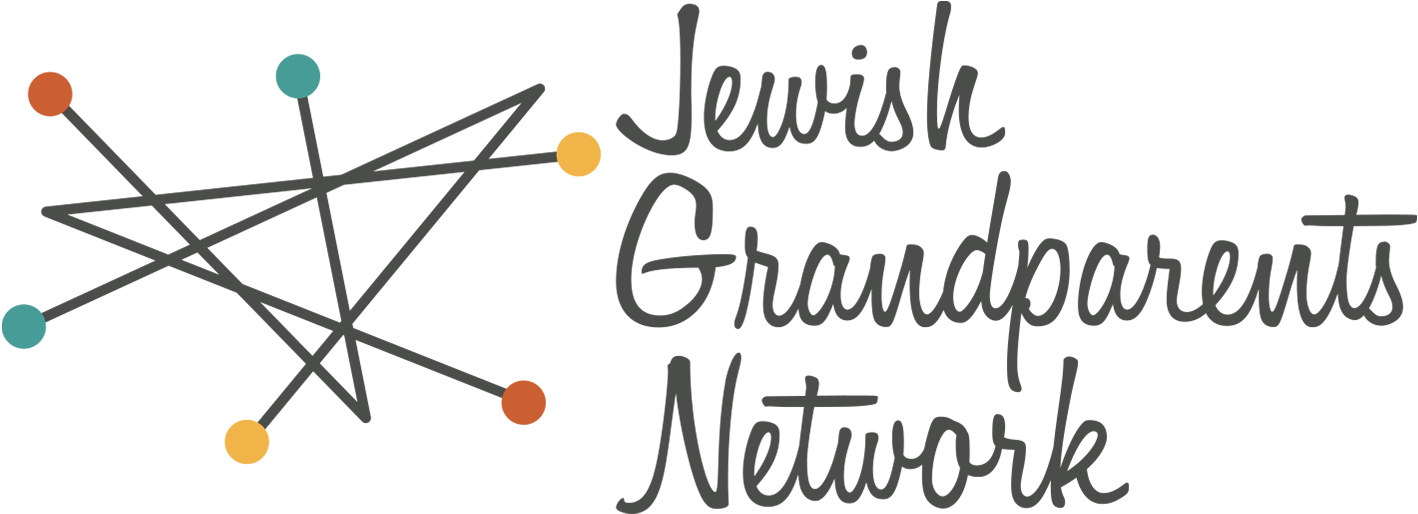
 We use technologies like cookies to remember your preferences. Consenting to these technologies will provide you with a better browsing experience. JGN never shares information about your use of our website.
We use technologies like cookies to remember your preferences. Consenting to these technologies will provide you with a better browsing experience. JGN never shares information about your use of our website.